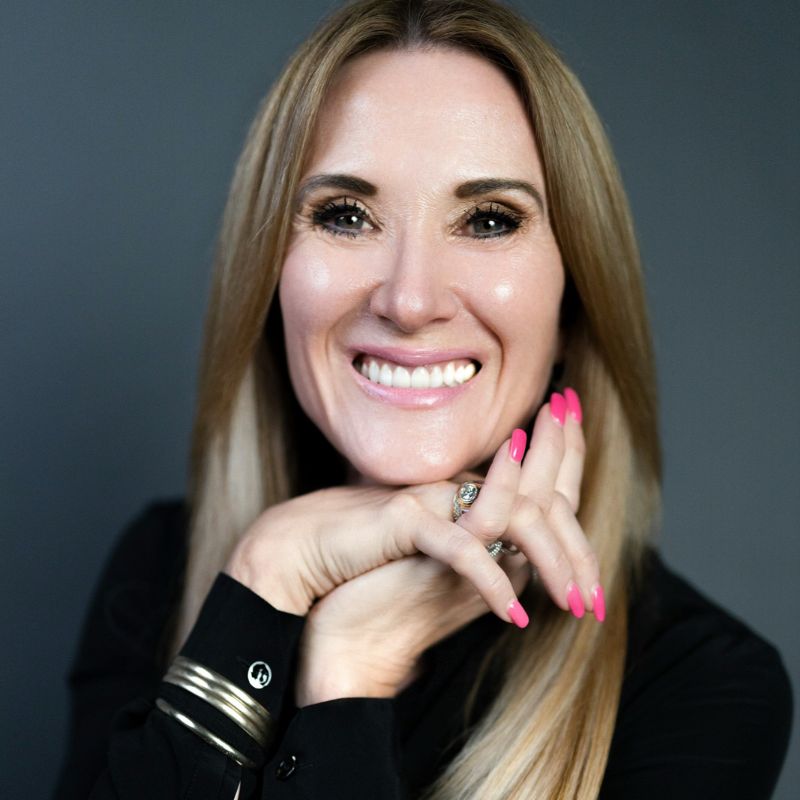On this podcast (episode #593) and weblog, I speak to bestselling writer and podcast host Elise Loehnen about being a lady in right now’s world, the worth we as ladies pay to be “good” and “on our greatest conduct”, how this impacts our psychological wellbeing, and a lot extra!
Elise is the host of Pulling the Thread, a podcast targeted on pulling aside the tales we inform about who we’re—after which placing these threads again collectively. She is a seeker and synthesizer, braiding collectively knowledge traditions, cultural historical past, and a deep information of therapeutic modalities to unlock new methods to contextualize who we’re and why we’re right here.
She’s additionally the writer of the New York Occasions bestseller On Our Best Behavior: The Seven Deadly Sins and the Price Women Pay to Be Good. This unbelievable e-book explores how male-dominated cultures influence ladies and are embedded in our consciousness, resulting in our personal self-policing conduct. It’s about the way in which we as ladies are programmed by society to stick to sure concepts about “goodness”. In some ways, we’re directed from youth to be on our greatest conduct, whereas males are directed to be highly effective, which impacts all components of a lady’s life.
The thought of a lady’s goodness as exterior and judged by society is completely different to the goodness that belongs to all of us, as human beings, intuitively. This exterior sense of “being good” is commonly compelled and performative in nature, and this occurs unconsciously—it’s a script that we as ladies didn’t essentially select however it’s foisted upon us from start. It’s fed to us as a map to morality, belonging and approval, typically suppressing and repressing what it actually means to be genuine to ourselves as ladies.
In some ways, this “script” relies on social notions of the seven lethal sins present in Christianity: delight, greed, lust, envy, gluttony, wrath, and sloth. For instance, Elise factors out in her e-book that seeing sloth as sinful leads ladies to disclaim themselves relaxation, a worry of gluttony drives them to disregard their appetites, and an aversion to greed prevents them from negotiating for themselves and contributes to the 55 p.c gender wealth hole we see in our world right now. Elise reveals how we, as ladies, have been “programmed to obey the principles represented by these sins and the way doing so qualifies us as ‘good’” and determines our value in society. From youth, we’re taught to internalize this mind-set and performing, typically unwittingly reinforcing it by our personal decisions and conduct: a very good lady isn’t drained, places different folks’s wants first, doesn’t want consideration or reward, has no urge for food and is on the small facet, is fascinating however not needing or sexual, doesn’t speak about cash or perceive it very properly (although her job is to assist the economic system), and he or she by no means complains about any of this.
After all, this concept of “goodness” and “being in your finest conduct” just isn’t so simple as males versus ladies. In some ways, we unconsciously police ourselves and different ladies based on these requirements, which signifies that we have now to work too intentionally to interrupt down these methods of pondering to vary them. We’ve got to unsubscribe from these unconscious patterns and methods of being if we wish to change the world for the higher and assist ladies be extra genuine to themselves and their intuitive sense of what it means to be “good”. The extra we’re conscious of this and might observe it in ourselves and others, the extra we will problem and alter the narrative—we will inform completely different tales about ourselves and different ladies, have a good time the “female”, and lay the groundwork for empowering ladies sooner or later.
For extra on being a ladies in right now’s world, hearken to my podcast with Elise (episode #593) and take a look at her unbelievable work and her e-book On Our Best Behavior: The Seven Deadly Sins and the Price Women Pay to Be Good. Should you take pleasure in listening to my podcast, please take into account leaving a 5-star assessment and subscribing. And preserve sharing episodes with family and friends and on social media. (Don’t neglect to tag me so I can see your posts!).
Photograph Credit score: ©GettyImages/Tero Vesalainen
Initially printed by Dr. Caroline Leaf. Used with permisison.





